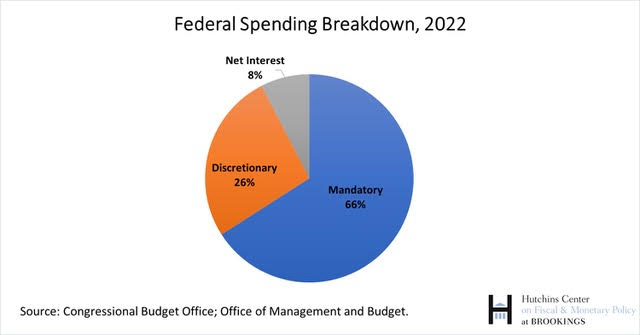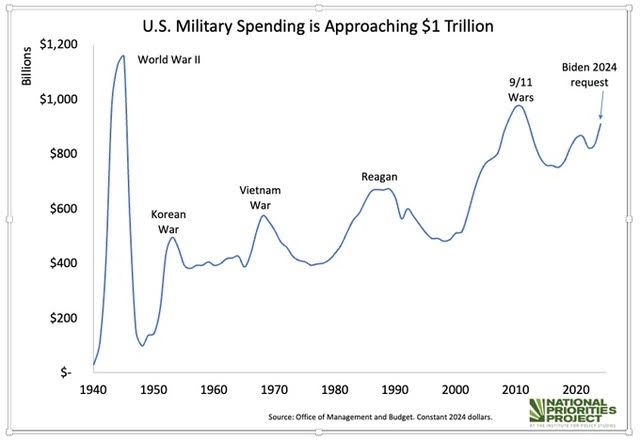Pennsylvania Congresswoman Chrissy Houlihan recently sent voters an email describing the thrilling proposed spending of close to $900 billion dollars for the National Defense Authorization Act, FY 2025. Houlihan, a Democrat representing Chester and Berks counties, delightedly ran down the list of how our taxes would be apportioned, describing it as “the government’s budget and policy blueprint for the military — and much more!”
While the NDAA presumably goes toward buying warships, 2,000-pound bombs, F-35s and, well, “much more,” Houlahan wanted to emphasize how local businesses can make a killing by becoming a contractor for the Pentagon. Houlihan details the potential jackpot, explaining, “If you are a defense contractor, sub-contractor, or looking to become one in PA-06, you can submit proposals for the NDAA too.”
But she urges speed. “We are one of 535 offices making these requests…” After all, how long can a mere $883 billion last?

In truth, no one really knows how far that budget will go, mainly because no one knows where all that money goes. A lot of it simply disappears, like the change you lose in the cushions. But instead of dollars, it’s billions. To date, we are unable to account for nearly $4 trillion in assets.
The Pentagon undergoes an annual audit to ensure the trillions of asset dollars are under control. In fact, the military has undergone seven separate financial audits.
They have also failed seven audits in a row.
Houlihan and her peers in Congress are responsible for overseeing the government’s budget, although two-thirds of that budget is, in effect, out of their control. The bulk of our spending is on social programs like Medicare and Social Security and are controlled by automatic increases tied to inflation.
Also, the growing interest payments cannot be touched, leaving discretionary spending, mostly on the military. The new DOGE (Department of Government Efficiency) program is supposed to reduce waste, but only Congress can enact changes in law affecting most spending. Unsurprisingly, Houlihan and others in Congress have done almost nothing to rein in out-of-control spending.

Which brings us back to the growing cost of the military. The number is likely to reach $1 trillion over the next few years, and the chances of the next fiscal audit being failed is probably 100 percent.
Constant audit failures, lack of spending transparency, and possible fraud and waste should raise serious concerns in Congress. Instead, we get an invitation by a representative to visit her office to learn about “Decoding the National Defense Authorization Act: Tips for a successful submission to grow your business,” an invitation to get in on the action.
Mandatory spending does not mean that saving is impossible. If these multiple failures teach us anything, it is that government programs are prone to waste, and the larger the program, the greater is the potential to waste money. Audits are valuable tools, but useless if no one acts in response. Congress feels good because it oversees an audit that it doesn’t act upon.
One solution may be using a Zero-Balance budgeting system. That requires an agency to ‘zero-out’ spending and justify the next year’s budget rather than receive automatic increases.

Alternately, we could take audits seriously and insist that failed audits are addressed and fixed before approving a budget. If the Pentagon can fail a fiscal audit seven times consecutively, what chance does DOGE have to rein in spending?
Congress needs to view government spending as a fiscally important duty entrusted to it by the voters who provided the funds, rather than an opportunity to invite constituents to rake in the money falling through the Pentagon’s couch cushions.
Oh, and you know what else costs too much? Those audits use 1,700 auditors, at an annual cost of $178 million dollars.

